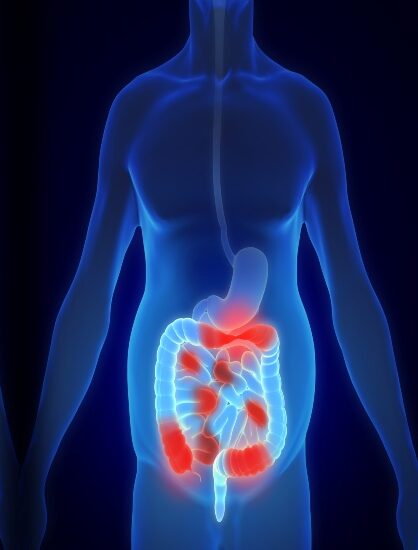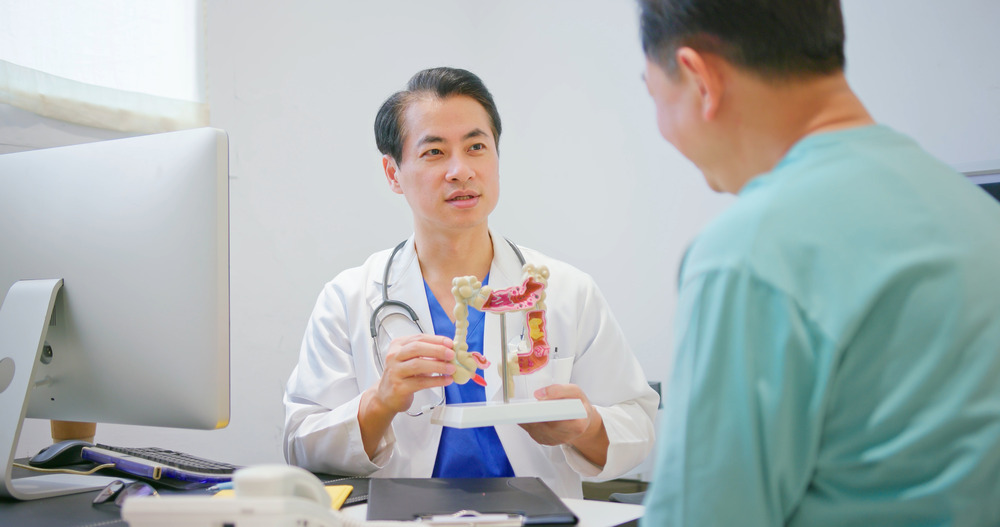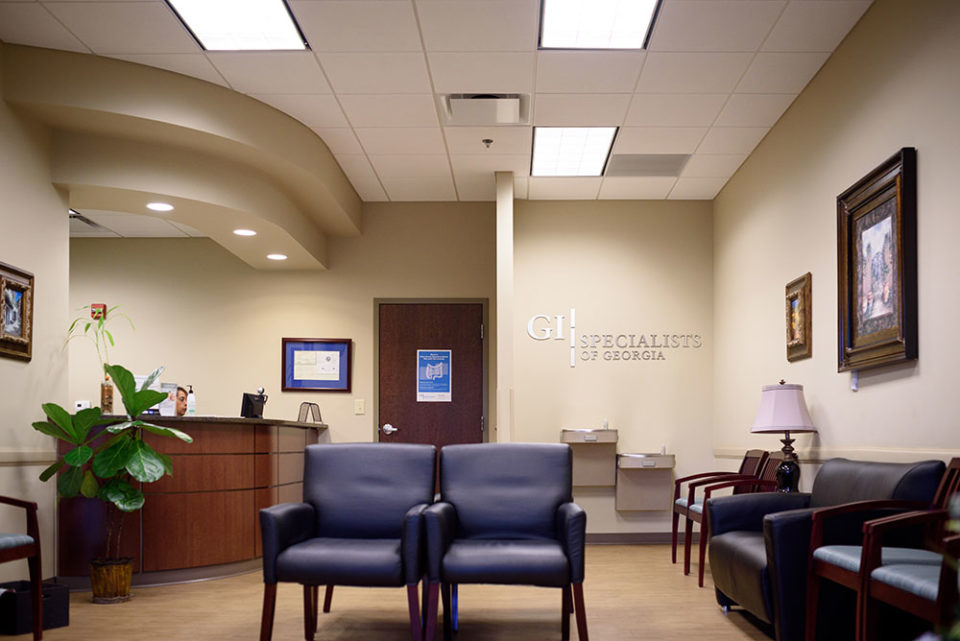What’s Crohn’s Disease?

Crohn’s Disease Symptoms & Causes
Crohn's disease affects around half a million Americans, including men, women, and children. Crohn's disease usually affects younger people in their late teens, 20s, or early 30s, but the condition can occur anytime. Some physicians consider Crohn's disease to be an autoimmune disease; however, instead of attacking your immune system, your body attacks a harmless virus, bacteria, or food in your gut. Crohn's disease is not contagious. You may be at a higher risk of Crohn's disease if you are a smoker, have a genetic predisposition, if you eat a high-fat diet or processed foods, or have a bacterial infection caused by mycobacterium. Crohn's disease symptoms include:
- Frequent diarrhea
- Unexplained weight loss
- Bloody feces or rectal bleeding
- Abdominal pain and/or tenderness
- Nausea or vomiting
- Fatigue
- Fever
- Mouth sores
- Joint pain
What Are the Types of Crohn’s Disease?
There are five primary types of Crohn’s disease, and each one affects a different part of the digestive tract:
- Ileocolitis – This is the most common type of Crohn's disease, affecting the colon and the last part of the small intestine.
- Crohn’s Colitis or Granulomatous Colitis – This type of Crohn’s disease affects only the colon.
- Gastroduodenal Crohn’s Disease – This type of Crohn’s disease affects the stomach and the first part of your small intestine.
- Ileitis – This type of Crohn’s disease affects your ileum.
- Jejunoileitis – This type of Crohn’s disease causes inflammation in the upper half of your small intestine.
Crohn's Disease Surgery
If no medication successfully puts your Crohn's disease symptoms in remission, we may recommend surgical Crohn's disease treatment. Around 65-75% of people with Crohn's disease will eventually need surgery. The most common surgical Crohn's disease treatments are:
- Bowel Resection – During this procedure, a surgeon will remove a diseased or damaged section of your bowel and join two healthy ends together. While this isn’t a Crohn’s disease cure, it can offer you years without Crohn’s disease symptoms. Crohn’s disease often reoccurs at the connection site or anastomosis.
- Ileostomy – If your rectum is too diseased for an anastomosis, the surgeon may need to connect your intestine to the skin of your torso, creating an opening where waste collects in a colostomy pouch.
In addition to surgery, we will also recommend dietary and lifestyle changes, dietary supplements, probiotics, and pain management therapies.

How Do GI Specialists of Georgia Treat Crohn’s Disease?
Your Crohn's disease treatment options will depend on the stage of the disease. Our specialists will conduct a medical screening and assess your age, lifestyle, overall health, medical history, symptoms, and disease progression to determine the right Crohn's disease treatment plan for you. Our goal is to reduce inflammation and other symptoms, improve your diet and lifestyle, reduce the risk of complications, and help you live an active, happy life. We may recommend one or more medications to treat your Crohn's disease, including:
- Anti-inflammatory medications like mesalamine, olsalazine, balsalazide, or sulfasalazine.
- Corticosteroids like budesonide, prednisone, or methylprednisolone.
- Immunomodulators like azathioprine or methotrexate.
- Antibiotics like ciprofloxacin or metronidazole.
- Anti-diarrheal drugs like loperamide.
- Biologic medications like adalimumab, certolizumab pegol, infliximab, natalizumab, risankizumab, ustekinumab, vedolizumab, tofacitinib, upadacitinib, or ozanimod.
Once you have begun a medication regimen, we will check with you every few weeks to see how well it works and assess any side effects. If the treatment works, you will continue until you are in remission and likely long term. As there is no cure, symptoms are likely to return if the medication is discontinued. If one Crohn's disease treatment doesn't work, we may try others. We will also suggest diet and lifestyle changes and nutritional supplements. You may also be eligible to participate in clinical trials through our research department.

Why Choose GI Specialists of Georgia
Schedule a Crohn's Disease Symptoms Test in Atlanta, GA
Schedule an Appointment with Our Atlanta-Area Gastroenterologists
"*" indicates required fields

